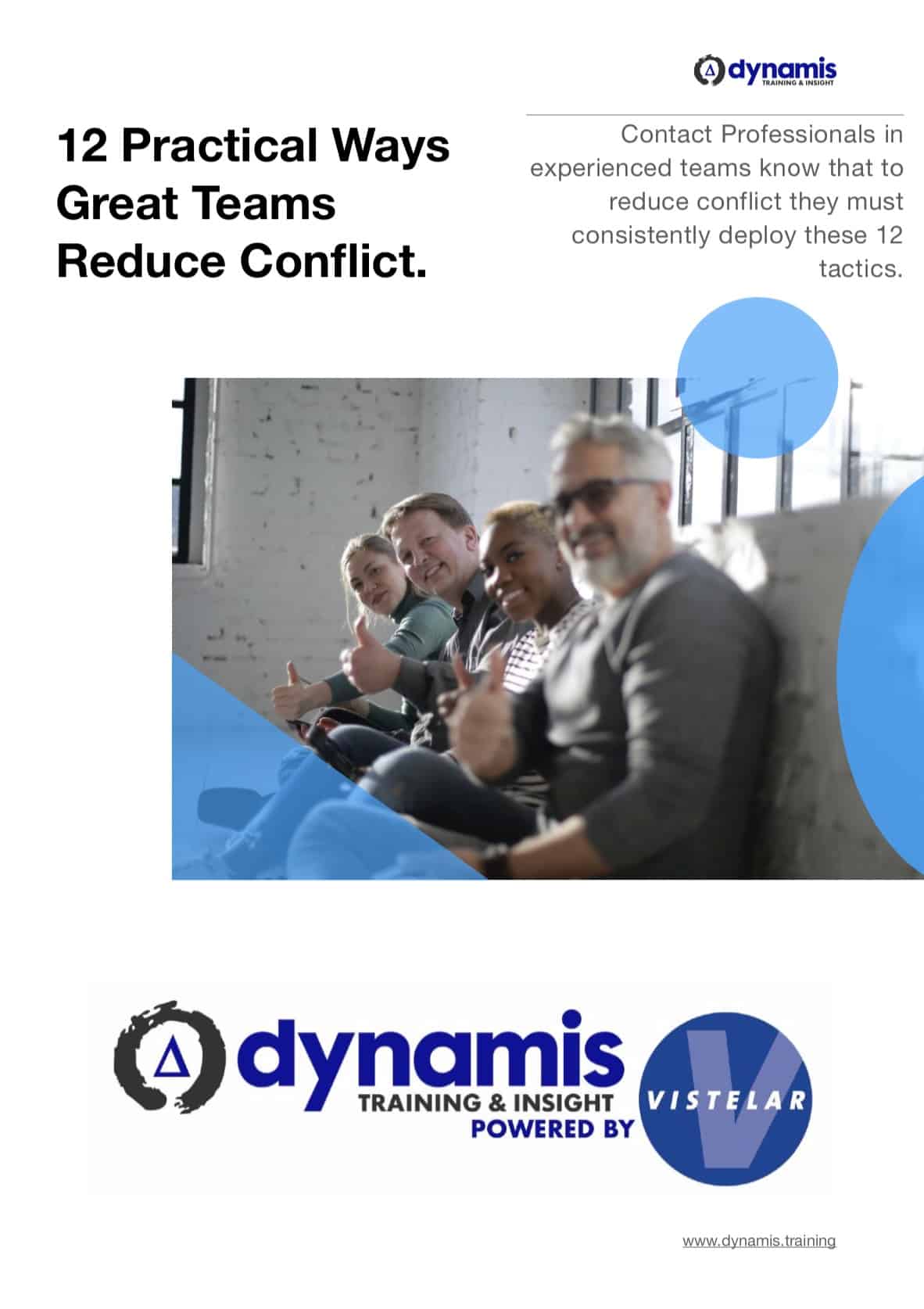Conflict Resolution across Cultures can be tricky! In our experiences deliveringconflict management courses in the UAE, Qatar and other GCC countries, we address issues of Conflict Resolution across Cultures. For example, the Arab communication style is known for containing exaggeration (through a fear of being ignored) over-assertion (through a fear of a point’s force being diminished) and repetition (through a fear of not being understood properly). In order to get one’s point across, there is no room here for British style tact or understatement!
Non-verbal communication is also super important!
This type of communication style, when viewed from a Western perspective, can appear violent or even aggressive or confrontational. But actually, on observing two people speaking in Arabic who are desperately trying to get their message across to the other person, it can be really shocking for a westerner to observe this, and to mistakenly but wholeheartedly believe that these people are actually fighting. But in reality, they’re having a pleasant conversation where their meaning is very clear to the other person, and there are no misunderstandings and everybody feels that it was a really nice chat!
Other elements of Conflict Resolution across Cultures we addressed:
- the importance of honour, shame and public visibility of actions
- the importance of family, honour and kinship
- the importance of hospitality towards guests
- the importance of seniority and credibility
- the distasteful position of having to say ‘No’ (and so never quite saying it!)
Some deep background, from “The Arab Mind”:
“For three thousand years , the desert was his impregnable stronghold : here the Bedouin could preserve undisturbed the way of life he had developed in close symbiosis with his camel , the “ ship of the desert . ” In the desert he was able to guard his sacred traditions , the purity of his language and his blood , and develop a unique social and cultural adaptation to one of the harshest environments known to man on earth. The Bedouins were, and are , a patrilineal and patriarchal society , kin-based and strongly kin-oriented. In the desert it was literally each man and his kin group against the rest of the world. People are all personally known to one another and most are related by blood or, at least , by a fiction of common descent. In such a small society there are considerable pressures to conform, to uphold the group values , and to live by the unwritten but inevitably well – known moral code of the group.”
We really like to look at conflict resolution through the lens of the SCARF model – so you may see mentions of Status, Certainty, Autonomy, Relatedness and Fairness in the detail below.
Here’s a video about the SCARF model which we use for Conflict Resolution across Cultures.
Here are some things we learned about Arab communication styles when we researched Conflict Resolution across Cultures
Authority is generally related to age and gender
Arab People tend to associate age with experience and wisdom
QUESTION: How can the healthcare staff present an experienced and authoritative ‘face’ to the patients or visitors? This is a STATUS issue.
Personal value comes not from individual deeds, but from social standing
Arab culture is built on relationships and connectedness to others – incredibly important as a source of power, comfort, and worth
The group holds great power over the individual’s behavior
QUESTION: Can the institution staff influence behaviour by focussing on social or group aspects of conflict situations, rather than “managing the individual”? How are staff managing RELATEDNESS?
Shame is the distressing emotion one seeks to avoid or has to bear for wrongful behavior. Shame is social; it is a reaction to the responses of others – others’ awareness brings about the sanction of shame
QUESTION: What situations in the healthcare context can precipitate the threat of “social shame” scenarios for patients or visitors? Are there control measures that can be put in place to reduce these incidences? This may be an AUTONOMY issue, where the offer of CONTROL and CHOICE may offer staff greater influence.
Information tends to have enhanced value and is communicated in more dramatic terms with enhanced texture and emotion. Information may be distorted in an attempt to increase the communicator’s value to the listener
QUESTION: In interactions between staff and patients or visitors, how aware are staff of the characteristic cultural/speech patterns? Is this a cause of conflict? Do the healthcare staff often feel intimidated? This will impact STRESS levels and ability to respond.
Arab People expect hospitality from others, and one’s personal status and reputation may be affected by the absence of such behaviour.
QUESTION: How much ‘frustration behaviour’ in the healthcare environment is the result of a perceived or actual STATUS (reputation) THREAT? What circumstances could constitute a STATUS THREAT for the average visitor to the service?
Family is the centre of honor, loyalty, and reputation for Arab People.
QUESTION: Do staff from other countries and cultures realise and act on the importance of family, hierarchy and kinship prevalent in Gulf Region culture?
“I don’t know” is distasteful to an Arab.
QUESTION: Do staff have to ask direct questions which place some patients or visitors in the position of having to answer in this way? Do staff have to answer “I don’t know” to questions from patients or visitors?
It is important to first establish respect and trust.
QUESTION: Is there sufficient time and resource to build rapport with patients in the institution? If no, how can this issue be mitigated? Are staff aware of strategies to quickly establish and improve rapport and credibility with patients or visitors?
Expect an Arab to ask for what he wants rather than merely what he needs. Work towards a satisfactory medium.
QUESTION: Are the healthcare staff confident in the use of effective negotiation skills? Are they demonstrating a flexibility of thought and a negotiation mindset?
Generosity to guests is essential for a good reputation.
QUESTION: Are there ways that staff can create and maintain the perception of generosity to guests, consistent with the traditions of hospitality, within the institution?
Guests often are given a seat of honour and will be asked frequently if they are comfortable.
QUESTION: How often are patients or visitors in the institution ‘checked in on’ by staff? Are patients or visitors met and greeted in a way that offers the perception of adequate hospitality in the circumstances?
Even under inconvenient or unexpected circumstances, a guest would never be refused entrance.
QUESTION: Is there the possibility that patients or visitors to the healthcare service might have the perception of being ‘refused’?
Do not put guests in a position to commit to a firm ‘yes’ or ‘no’ in front of other Arab People. Social pressure could compel the guest to agree to a commitment he has no intention of keeping.
QUESTION: How much conflict in the institution has to do with fixed commitments to courses of action? are there perceived breaches in the level of “FAIRNESS” between parties?
Keep verbal commitments
QUESTION: Do staff in the institution face situations in which they must break verbal commitments made to patients or visitors? This is a FAIRNESS issue.
We hope this brief exploration of Conflict Resolution across Cultures is helpful – let us know if you agree or disagree with the ideas above!
Dynamis provides a comprehensive conflict resolution training programme which spans the whole spectrum of encounters . In this series of posts, our Director of Training reflects on key ideas in addressing conflict in the hospital and beyond.


